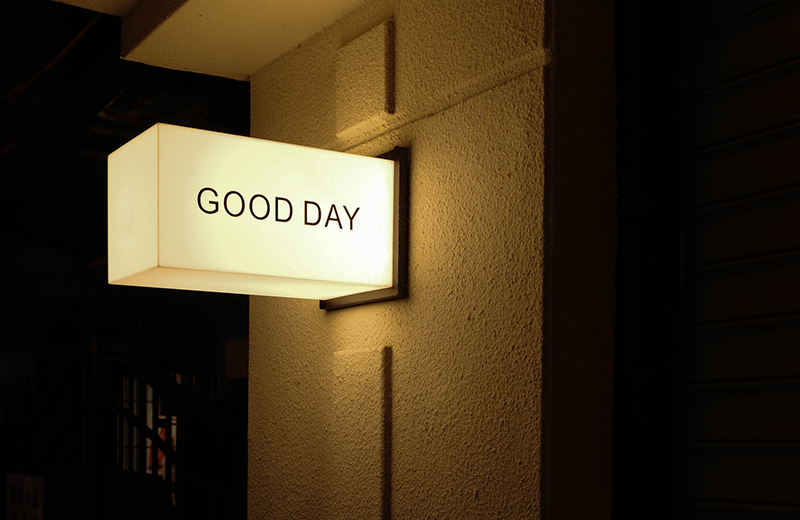Are You a Morning Lark or a Night Owl?

The world is designed for morning people. Most jobs require us to jump out of bed in sync with the sun and happily tackle the workday.
For the morning larks of the world, this is perfect.
For the night owls of the world, not so much: getting out of bed before 9 a.m. is a tough ask, and anything before 8 a.m. is a write-off. Night owls come alive late into the evening, crawling out of bed the next morning out of pure necessity, desperately seeking caffeine.
Are night owls lazy, and morning larks disciplined? Or is something else driving their behavior? If you’re a night owl, I’m here to tell you that it’s not your fault. Science suggests that your chronotype – when you feel alert or drowsy – is largely genetic [1].
Society punishes night owls for their unfortunate luck. Work schedules require them to feign alertness in the morning while their brain is working at half capacity. By the end of the day, as their cognition peaks, the workday ends and their productivity is wasted. Consequently, they exist in a perpetual state of sleep deprivation. Worse yet, they are labelled as lazy by self-righteous morning people!
Evolutionary Origins
You may be wondering why we don’t all have the same preferred sleep-wake cycle – wouldn’t it seem logical for everyone to match the sun’s rhythm? To understand why we don’t, it’s helpful to appreciate that on its surface, sleep is as unlikely an activity as evolution could design.
Think about it: you lay defenseless, vulnerable to predators, for a third of your day. If mother nature could have dispensed with sleep, she would have. Scientists believe that when we lived in hunter-gatherer communities, we slept in shifts to ensure someone was on guard at all times [2]. Next time you’re lying awake at 1 a.m., staring at the ceiling, you can curse your ancestors who took the night shift.
Consequences of Disrupting Natural Cycles
The negative consequences of this evolutionary holdover aren’t just social. Studies show that disruption of your natural sleep-wake rhythms leads to an increased risk of obesity [3], cancer [4], dementia [5], depression [6], and cardiovascular dysregulation [7]. These harms are not trivial and need to be acknowledged on an individual and societal level.
Societal Implications
Imploring a night owl to just wake up earlier is like imploring a fish to survive on land. Tough sell.
We need to change the way we structure our workplaces to grant everyone the flexibility to thrive, and we also need to take personal responsibility to design a life congruent with our chronotype. With many jobs remaining virtual in the aftermath of COVID-19, such workplace changes – basing productivity metrics on outcomes, rather than time, for example – should be doable in many sectors.
On an individual level, if you’re a night owl who has taken all possible steps towards better sleep and still can’t hack it, try to find work that suits your biological rhythm. Your brain and body will thank you.
References
[1] Barclay, N. L., & Gregory, A. M. (2013). Quantitative genetic research on sleep: a review of normal sleep, sleep disturbances and associated emotional, behavioural, and health-related difficulties. Sleep medicine reviews, 17(1), 29-40.
[2] Samson, D. R., Crittenden, A. N., Mabulla, I. A., Mabulla, A. Z., & Nunn, C. L. (2017). Chronotype variation drives night-time sentinel-like behaviour in hunter–gatherers. Proceedings of the Royal Society B: Biological Sciences, 284(1858), 20170967.
[3] Tevy, M. F., Giebultowicz, J., Pincus, Z., Mazzoccoli, G., & Vinciguerra, M. (2013). Aging signaling pathways and circadian clock-dependent metabolic derangements. Trends in Endocrinology & Metabolism, 24(5), 229-237.
[4] Stevens, R. G., Brainard, G. C., Blask, D. E., Lockley, S. W., & Motta, M. E. (2014). Breast cancer and circadian disruption from electric lighting in the modern world. CA: a cancer journal for clinicians, 64(3), 207-218.
[5] Tranah, G. J., Blackwell, T., Stone, K. L., Ancoli‐Israel, S., Paudel, M. L., Ensrud, K. E., ... & SOF Research Group. (2011). Circadian activity rhythms and risk of incident dementia and mild cognitive impairment in older women. Annals of neurology, 70(5), 722-732.
[6] Salgado-Delgado, R., Tapia Osorio, A., Saderi, N., & Escobar, C. (2011). Disruption of circadian rhythms: a crucial factor in the etiology of depression. Depression research and treatment, 2011.
[7] Willis, T. A., O'Connor, D. B., & Smith, L. (2005). The influence of morningness–eveningness on anxiety and cardiovascular responses to stress. Physiology & behavior, 85(2), 125-133.














